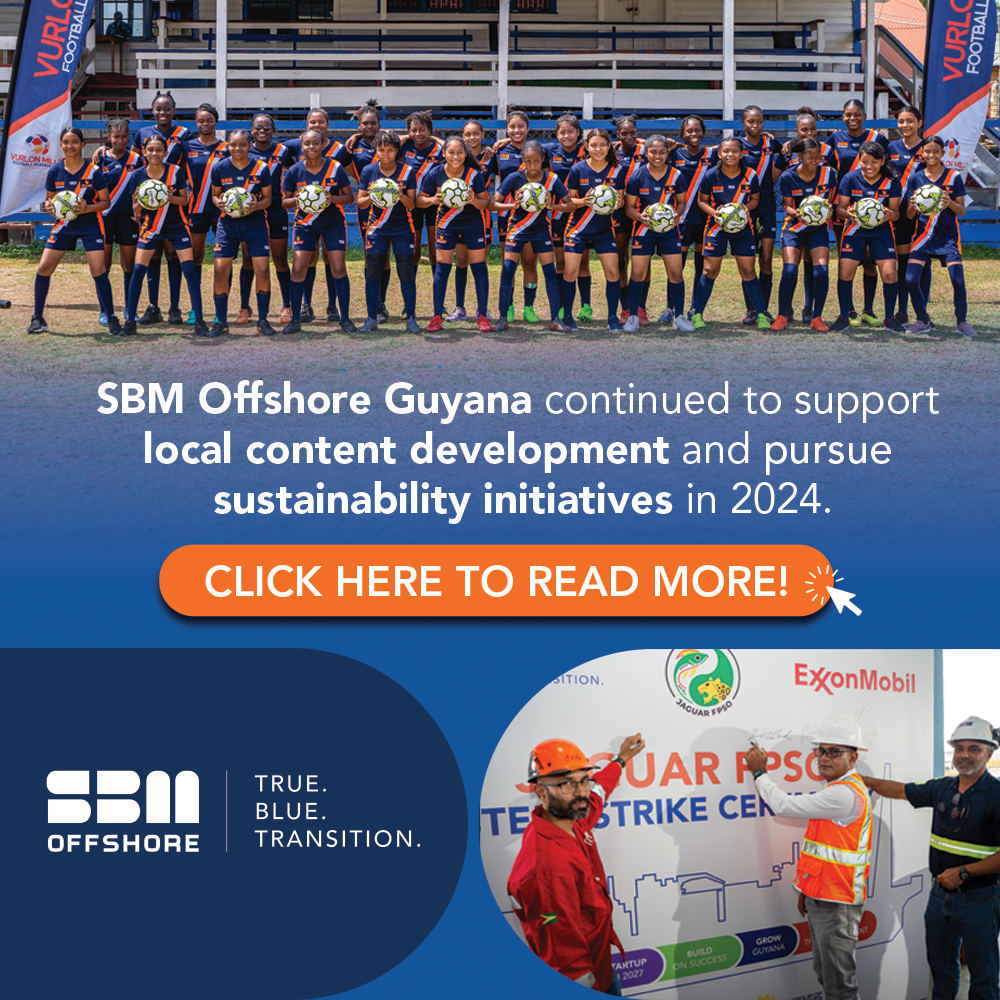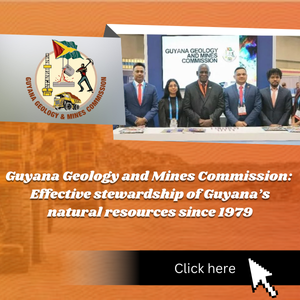Government leverages oil funds in daring drive for sustainable economic growth

Guyana’s national budget surged to a record-shattering USD5.496 billion (GYD1.146 trillion), a massive 47% increase from the USD3.75 billion (GYD781.9 billion) 2023 budget, showcasing the nation’s rapid oil-powered economic growth.
Fueling this remarkable financial advancement is the booming oil sector that economists predict will contribute 29% to the national budget this year. In the fiscal year 2023, oil-related revenue pumped USD1.617 billion (GYD337 billion) into the Natural Resource Fund (NRF), including significant returns from royalties and profit-oil sales.
In a bold move to accelerate public investment and enhance social services, the government presented a bill in Parliament to amend the NRF Act to allow increased spending beyond current limits. This strategic step aims to leverage newfound oil wealth for the benefit of its people and transform the nation into an economic powerhouse.
The proposed amendments introduce a revamped withdrawal formula, granting full access to the first USD1 billion (GYD208.5 billion) the country received in the preceding year, with decreasing percentages for subsequent billion-dollar increments.
If approved, this modification would catapult the spending cap from USD1.154 billion (GYD240.6 billion) to USD1.586 billion (GYD330.7 billion). Consequently, the government would gain access to approximately 98% of the oil revenues garnered in 2023, sparking debates about the potential consequences of this bold move.
The Ministry of Finance has asserted that financial experts designed these changes to strike a balance, saving a growing share of NRF inflows for future needs while allowing substantial transfers to the Consolidated Fund—the primary bank account for national development priorities.
Critics warn that this plan may incur serious risks by reducing the emphasis on long-term savings and potentially escalating overspending and economic overheating. However, the International Monetary Fund (IMF) 2023 report on Guyana did not indicate any signs of inflationary pressures or economic overheating despite the substantial influx of oil revenues since 2020.
The planned revision of NRF withdrawal rules anticipates that Guyana will amass nearly USD3.5 billion from oil sales and royalties in the first four years of production. If the government applies this withdrawal model to the 2024 budget spending, less than USD400 million would remain in NRF savings. Rapid investment of oil funds can catalyze development projects, but critics worry that this strategy might be unsustainable with dire implications for long-term financial stability.
Vice President Bharrat Jagdeo, who oversees the oil and gas sector, has underscored the administration’s commitment to meeting immediate large-scale development needs but also indicated that a future shortfall in oil revenue could trigger a “steep fallout” in annual budgets. Therefore, the approach to spending oil funds aims for a delicate balance between short-term development goals and long-term fiscal responsibility.
Guyana’s ambitious development agenda spans vital sectors like transport infrastructure, schools, hospitals, and energy plants. The massive 2024 budget, mirroring its predecessor, leans heavily on oil revenues, so unleashing its immense benefits relies heavily on the stability of global oil prices and how the nation navigates price volatility.
As Guyana navigates the complexities of newfound oil wealth, it stands at a critical juncture, carefully weighing the urgency of immediate development with the need for prudent fiscal management. The proposed amendments to the NRF Act signify a strategic shift in budgetary policy, emphasizing increased spending to drive rapid socioeconomic growth.
The Vice President highlights the importance of balancing short-term gains and long-term fiscal responsibility for sustainable economic prosperity. This balance is critical to the success of the Green State Development Strategy: Vision 2040, which is the government’s 20-year plan aiming to use natural resources strategically to enhance the quality of life for Guyanese citizens.




